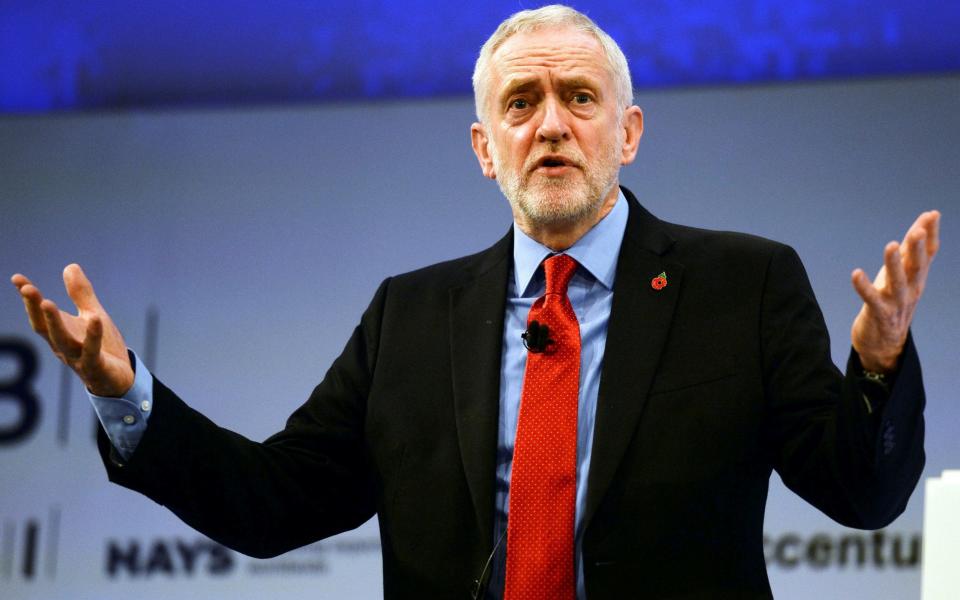Corbyn faces human rights battle over nationalisations, top law firm warns

Jeremy Corbyn and John McDonnell will face expensive and unwinnable legal battles with investors if they go ahead with plans to nationalise swathes of British industry, one of the world's top law firms has warned.
Amid rising City fear of a hard Left Labour government, a new analysis by the Magic Circle firm Clifford Chance has found that attempts to take control of top companies at bargain prices would face strong resistance in the courts as a violation of human rights.
Labour wants to renationalise rail, energy and water companies as well as the Royal Mail, which was privatised in 2014.
Mr McDonnell, the Shadow Chancellor, said the price would be set by parliament, suggesting shareholders would not get the full market value for their assets.

“Nationalisation for less than full market value will, almost inevitably, trigger compensation claims by investors. The investors likely to have the best chance of launching a successful claim are those based in a jurisdiction that is party to an investment treaty with the UK, including, for example, China, Hong Kong and Singapore,” Clifford Chance said.
These treaties are set up to reassure investors that they will not lose out in any nationalisations, and the international arbitration rulings cannot be overruled by Parliament, the law firm said.
“Investors who do not benefit from investment treaty protection, including UK investors, would have a potential claim under the Human Rights Act 1998 and/or the European Convention on Human Rights, but these claims are likely to face greater challenges,” it said.
Furthermore, if foreign investors win their case for a full market-value payout, then Clifford Chance argues the Government would likely have to pay UK pension funds and other investors the same amount.
History suggests it is also very difficult to work out a ‘market value’ payment, as shares in the affected companies would tumble as nationalisation becomes more likely.

This could lead to further legal action by any perceived losers from the valuation.
Previous estimates by the Centre for Policy Studies suggested the nationalisations could cost the Government £176bn.
This could be an underestimate, however, as it only includes the cost of buying the companies’ shares.
Clifford Chance believes bonds and other debts may have to be bought too under provisions for the change of ownership of the company, adding to the expense.
Even if this did not happen, the Government may want to redeem the bonds anyway because they typically pay investors a higher rate of interest than Government bonds, because of the higher risk of lending to the private sector.
However, these bonds in turn often include ‘yield protection’ clauses triggering further payouts if they are redeemed early, adding again to the cost.
Buying out Royal Mail’s debt as well as its equity would take its nationalisation alone from £4.5bn to £5.2bn, the lawyers estimate.
The nationalisations would also be done on a very different basis to anything in the past, Clifford Chance said, as these businesses are not on the verge of collapse, nor are they unprofitable or unsustainable.

Labour said Clifford Chance “has very close links to the Conservative Party and clients with a vested interest in opposing our public ownership programme.”
"Legal precedent is clear that Parliament can decide the level of compensation for shareholders, and have regard for the public interest in doing so,” a spokesperson said.
“With returns significantly higher than bond yields the taxpayer will be better off from taking into public ownership these privatised services."

 Yahoo Finance
Yahoo Finance 